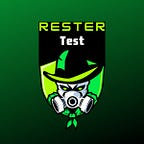How to spot burnout in testers and not only
Burnout is a state of physical, emotional, and mental exhaustion caused by prolonged exposure to stress. It is a common problem that affects many people in different professions, including software testing. Testers are responsible for ensuring that software is of high quality and meets the necessary requirements. However, testing can be a demanding job that can lead to burnout. Here are 15 signs that a tester may be experiencing burnout:
- Constant Tiredness: Testers who experience burnout may feel tired all the time, even after getting enough sleep. They may wake up feeling exhausted and have a hard time getting through the day.
- Loss of Motivation: Testers who are burned out may lose their motivation and interest in their work. They may find it challenging to focus on tasks and have a hard time staying engaged.
- Decreased Productivity: Burnout can lead to decreased productivity, making it hard for testers to complete tasks on time or meet deadlines.
- Increased Errors: Burnout can cause testers to make more mistakes than usual, leading to costly errors and delays in the testing process.
- Emotional Exhaustion: Testers who experience burnout may feel emotionally drained and overwhelmed. They may have trouble managing stress and experience increased anxiety and depression.
- Physical Symptoms: Burnout can also lead to physical symptoms such as headaches, backaches, and stomach problems.
- Reduced Attention Span: Testers who are burned out may find it difficult to focus on their work. They may become easily distracted and have a hard time concentrating.
- Negative Attitude: Burnout can cause testers to develop a negative attitude towards their work. They may feel pessimistic and cynical, leading to a decrease in morale and motivation.
- Difficulty Sleeping: Burnout can make it difficult for testers to get a good night’s sleep. They may experience insomnia or have trouble staying asleep, leading to further stress and exhaustion.
- Increased Absenteeism: Burnout can cause testers to take more sick days or time off. This can be a sign that they need a break from work to recharge and recover.
- Lack of Social Interaction: Testers who experience burnout may withdraw from social interaction. They may become less communicative and isolate themselves from their colleagues, leading to feelings of loneliness and further stress.
- Short Temper: Burnout can cause testers to have a short temper, leading to conflicts with colleagues and a decrease in productivity.
- Decreased Job Satisfaction: Testers who experience burnout may feel less satisfied with their job and their career path. They may start to question their goals and purpose, leading to further stress and frustration.
- Lack of Creativity: Burnout can also cause testers to lose their creativity and ability to think outside the box. This can lead to a decrease in innovation and efficiency.
- Cognitive Fatigue: Burnout can cause cognitive fatigue, making it hard for testers to think clearly and make informed decisions.
6In conclusion, burnout is a serious problem that can affect the performance, health, and well-being of testers.
It is essential for testers to recognize the signs of burnout and take steps to address the issue. This may include taking a break, seeking professional help, or talking to their manager about ways to reduce their workload or improve their work-life balance.
By taking care of their mental and physical health, testers can continue to perform at their best and enjoy a fulfilling career in software testing.
